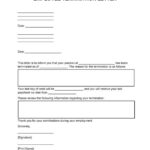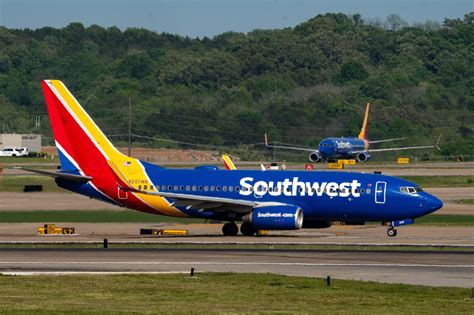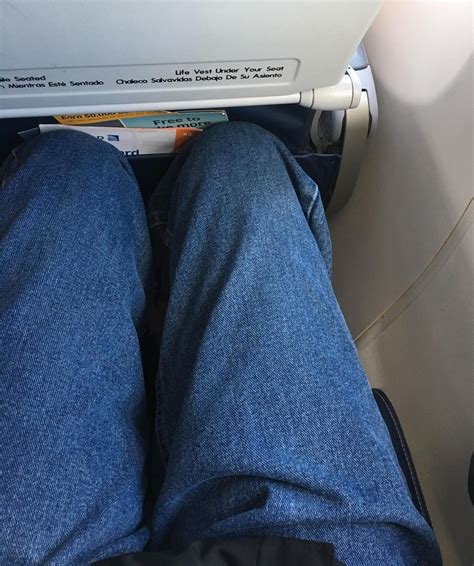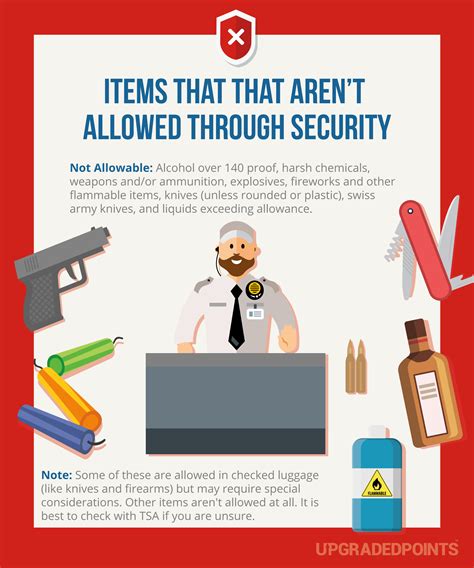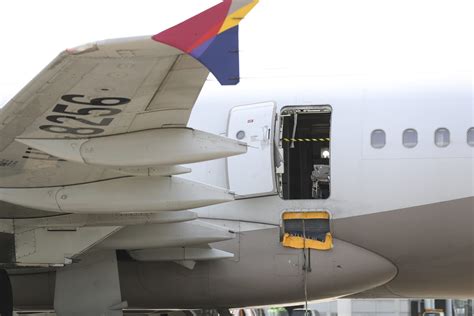
A passenger’s initial elation over a complimentary upgrade to first class quickly dissolved into dismay after discovering the grim reason behind the unexpected perk: the seat next to him was occupied by a deceased individual.
The incident, recounted by the traveler on a Reddit forum, details a jarring experience that transformed a moment of perceived good fortune into a deeply unsettling ordeal, highlighting the often-unseen realities of air travel and the protocols surrounding in-flight deaths. The passenger, whose identity remains undisclosed, boarded the flight anticipating a standard journey, only to be surprised by the offer of a free upgrade. His confusion soon turned to horror as he learned the upgrade was necessitated by the passing of a fellow passenger mid-flight.
According to the Reddit post, the deceased individual was traveling with their spouse. The airline staff, upon determining the passenger had died, reportedly sought to provide some measure of comfort and privacy to the grieving spouse by offering the adjacent seat to another passenger. The original poster (OP) accepted the upgrade, unaware of the circumstances, and only discovered the truth after settling into his new seat and observing the unusual situation.
The OP described the scene as deeply disturbing, noting the visible distress of the deceased’s spouse and the surreal atmosphere within the first-class cabin. The post sparked a wide range of reactions online, with many expressing sympathy for all involved and questioning the airline’s handling of the sensitive situation. Others raised concerns about the potential psychological impact on the upgraded passenger and the ethical considerations of placing a living person next to a deceased one.
The incident raises questions about airline protocols for handling passenger deaths during flights, the responsibilities of airline staff in such situations, and the potential trauma experienced by fellow passengers. While airlines have procedures for dealing with medical emergencies and unexpected deaths, the Reddit post underscores the human element of such events and the challenges of balancing passenger comfort with logistical necessities.
Specific airline policies regarding in-flight deaths vary, but generally, the primary focus is on determining the cause of death and ensuring the safety and well-being of the remaining passengers. In most cases, if a doctor or medical professional is on board, they will be consulted to confirm the death. The captain will then typically contact ground control to report the situation and coordinate further actions. The body is usually kept in its seat, covered with a blanket, for the remainder of the flight, if possible. This is done to maintain dignity and minimize disruption to other passengers. The decision to divert the flight depends on various factors, including the circumstances of the death, the availability of medical facilities at the destination, and the preferences of the deceased’s family, if known.
The Reddit user’s account highlights a rare but potentially traumatic event that can occur during air travel. While airlines are trained to handle such situations professionally, the incident serves as a reminder of the unexpected and sometimes unsettling realities that can unfold at 30,000 feet. It also raises ethical questions about the balance between passenger comfort, privacy, and the logistical challenges of managing an in-flight death. The long-term psychological impact on the upgraded passenger and the grieving spouse is also a significant consideration. The post’s virality underscores the public’s fascination with the unusual and the shared human experience of confronting mortality, even in the seemingly sterile environment of modern air travel.
Further details emerged from the Reddit thread, including the OP’s description of the deceased’s spouse as being understandably distraught. The OP also mentioned feeling conflicted about his own role in the situation, questioning whether he should have declined the upgrade or requested a different seat upon learning the truth. He ultimately decided to remain in his upgraded seat, partly out of a sense of awkwardness and partly out of a desire not to further disrupt the already delicate situation.
The incident also prompted discussion about the lack of transparency in such situations. Some commenters argued that the airline should have been more upfront with the OP about the reason for the upgrade, allowing him to make an informed decision about whether or not to accept it. Others defended the airline’s actions, suggesting that they were trying to minimize distress to the other passengers and protect the privacy of the deceased.
Airline industry experts noted that while in-flight deaths are rare, they are not entirely uncommon, particularly on long-haul flights. Airlines typically have protocols in place to handle such situations, but these protocols are often designed to prioritize the safety and comfort of the majority of passengers. The incident described in the Reddit post highlights the limitations of these protocols when faced with the complex emotional and ethical considerations surrounding a passenger’s death.
The event also shed light on the training and resources available to airline staff in dealing with such incidents. Flight attendants receive training in basic first aid and emergency procedures, but they are not equipped to provide extensive medical care or psychological support. In the event of a medical emergency, airlines typically rely on the presence of medical professionals on board or on remote consultations with doctors on the ground. However, in the case of a confirmed death, the focus shifts to managing the situation with sensitivity and minimizing disruption to the flight.
The Reddit post also sparked a broader discussion about the ethics of commercial air travel, particularly in situations involving death or serious illness. Some commenters argued that airlines have a moral obligation to provide support and compensation to passengers who are affected by such events. Others suggested that airlines should be more transparent about the risks of air travel, including the possibility of medical emergencies and in-flight deaths.
The long-term effects of such an experience on the upgraded passenger, the deceased’s spouse, and other passengers on the flight are difficult to quantify. However, mental health professionals note that witnessing a death, particularly in a confined space, can be a traumatic experience that can lead to anxiety, depression, and post-traumatic stress disorder (PTSD). The lack of control over the situation and the feeling of being trapped can exacerbate these effects.
The incident also raises questions about the role of social media in disseminating information and shaping public opinion. The Reddit post went viral, attracting thousands of comments and generating widespread media coverage. This highlights the power of social media to amplify individual experiences and hold institutions accountable. However, it also underscores the importance of verifying information and avoiding speculation, particularly in sensitive situations involving death and grief.
The specific airline involved in the incident has not been publicly identified. However, several major airlines have issued statements emphasizing their commitment to passenger safety and well-being. These statements typically outline the airlines’ protocols for handling medical emergencies and in-flight deaths, as well as the training and resources provided to their staff.
The incident serves as a reminder of the human element of air travel and the importance of empathy and compassion in dealing with unexpected events. While airlines have a responsibility to maintain safety and efficiency, they also have a moral obligation to treat passengers with dignity and respect, particularly in times of distress. The long-term impact of the Reddit post may be to encourage airlines to review their protocols and provide better support to passengers who are affected by in-flight deaths.
In addition to the immediate emotional impact, the incident raises potential legal and financial considerations. The deceased’s family may have grounds to file a wrongful death lawsuit against the airline, particularly if they believe that the airline’s negligence contributed to the passenger’s death. The upgraded passenger may also be entitled to compensation for the emotional distress caused by the incident.
The incident also highlights the importance of travel insurance. Travel insurance can provide coverage for medical expenses, trip cancellations, and other unexpected events, including death. Passengers should carefully review their travel insurance policies to ensure that they are adequately protected in the event of a medical emergency or other unforeseen circumstance.
The Reddit post also prompted discussion about the role of technology in improving passenger safety and well-being. Some commenters suggested that airlines should invest in better medical equipment and training for their staff. Others proposed the development of new technologies, such as wearable sensors, that could monitor passengers’ vital signs and alert flight attendants to potential medical emergencies.
The incident serves as a reminder that air travel is not always a comfortable or predictable experience. While airlines strive to provide a safe and enjoyable journey, unexpected events can occur that can disrupt even the most carefully planned trip. Passengers should be prepared for the possibility of delays, cancellations, and medical emergencies, and they should be aware of their rights and responsibilities in such situations.
The aftermath of the Reddit post included numerous online polls and surveys asking people how they would react in a similar situation. The results varied widely, with some respondents saying they would immediately request a different seat, while others said they would try to remain calm and offer support to the deceased’s spouse. These polls underscore the subjective nature of the experience and the lack of a clear consensus on how to handle such a sensitive situation.
The incident also prompted a renewed focus on the importance of mental health awareness. Mental health professionals emphasized the need for passengers who have witnessed a death or other traumatic event to seek professional help. They also stressed the importance of providing support and understanding to individuals who are grieving the loss of a loved one.
The Reddit post also highlighted the challenges faced by airline staff in dealing with difficult situations. Flight attendants are often the first responders in medical emergencies, and they are responsible for managing passenger safety and comfort. They are also expected to provide emotional support to passengers who are distressed or grieving. This requires a high level of training, empathy, and resilience.
The incident serves as a reminder of the interconnectedness of human lives and the importance of compassion and understanding. While air travel can sometimes feel impersonal and isolating, it is ultimately a shared human experience. By treating each other with respect and empathy, we can make even the most challenging journeys a little bit easier.
The lack of specific details about the airline and the deceased passenger has made it difficult to verify all aspects of the Reddit post. However, the widespread media coverage and the numerous comments from other travelers suggest that the incident is plausible and that it reflects a real concern about the handling of in-flight deaths.
The incident also raises questions about the future of air travel. As the number of passengers continues to grow, airlines will face increasing pressure to improve safety, comfort, and efficiency. This will require a combination of technological innovation, improved training, and a renewed focus on the human element of air travel.
The Reddit post has had a lasting impact on the online community, sparking ongoing discussions about the ethics of air travel, the importance of mental health awareness, and the need for compassion and understanding in the face of adversity. It serves as a reminder that even in the age of technology and globalization, the human connection remains essential. The anonymity afforded by platforms like Reddit allowed the original poster to share a deeply personal and disturbing experience, sparking a global conversation about how airlines and individuals should handle the sensitive issue of death during air travel. The story’s virality underscores the public’s morbid curiosity and the shared human experience of grappling with mortality, even in the seemingly sterile environment of a commercial airplane.
The narrative also highlights the stark contrast between the often-glamorized image of air travel and the potential for unexpected and unsettling events to occur. While airlines market their services as providing comfort and convenience, the reality is that passengers are confined to a small space with strangers, subject to the vagaries of weather, mechanical malfunctions, and, in rare cases, medical emergencies and death.
The incident also prompts reflection on the role of airline personnel in managing such crises. Flight attendants are trained to handle a wide range of situations, from turbulence to medical emergencies, but dealing with a passenger’s death requires a unique set of skills and sensitivities. The Reddit post suggests that the airline staff in this particular instance may have struggled to balance the need to maintain order and decorum with the emotional needs of the deceased’s spouse and the other passengers on board.
The incident also raises questions about the ethical responsibilities of passengers in such situations. The upgraded passenger, upon learning the reason for the upgrade, faced a difficult decision: accept the upgrade and potentially experience discomfort and emotional distress, or decline the upgrade and potentially inconvenience the airline and the deceased’s spouse. There is no easy answer, and the Reddit post highlights the complexities of navigating such ethically ambiguous situations.
The long-term psychological impact on the various individuals involved – the upgraded passenger, the deceased’s spouse, and the flight attendants – is a significant concern. Witnessing a death, particularly in a confined space, can be a traumatic experience that can lead to anxiety, depression, and PTSD. Airline staff should be prepared to provide counseling and support services to passengers and employees who have been affected by such events.
Finally, the incident serves as a reminder of the importance of planning for the unexpected. Travel insurance can provide coverage for medical expenses, trip cancellations, and other unforeseen circumstances, including death. Passengers should carefully review their travel insurance policies to ensure that they are adequately protected in the event of an emergency. Additionally, it is important to have a plan in place for contacting loved ones in the event of a medical emergency or other unforeseen event.
The Reddit post, while disturbing, has served as a catalyst for important conversations about the ethics of air travel, the handling of in-flight deaths, and the importance of compassion and understanding in the face of adversity. It is hoped that airlines will take note of the concerns raised and review their protocols to ensure that they are providing the best possible care and support to passengers in all situations.
Frequently Asked Questions (FAQ)
1. What are airlines’ typical procedures for handling a passenger’s death mid-flight?
Airlines typically follow a protocol that prioritizes confirming the death and minimizing disruption. If a doctor is on board, they will be consulted. The captain will contact ground control. The body is generally kept in its seat, covered, to maintain dignity. Diversion depends on circumstances. Specific procedures can vary.
2. Is it common for passengers to receive upgrades when there is a death on board?
It is not a common practice, but in this specific case, it appears the upgrade was offered to provide space and privacy to the grieving spouse of the deceased. This is a highly unusual situation, and the decision likely depended on the specific circumstances and the availability of seats. There are no explicit rules mandating this, and it likely reflects an attempt to manage a sensitive situation with limited resources.
3. What are the ethical considerations for airlines when a passenger dies during a flight?
Ethical considerations include balancing the need to maintain a safe and comfortable environment for all passengers with the dignity of the deceased and the needs of their family. Transparency with other passengers is also a factor, as is providing adequate support to grieving family members. Airlines must also adhere to legal requirements regarding reporting and handling a death.
4. Can a passenger sue an airline if they experience emotional distress due to a death on board?
The ability to sue for emotional distress varies depending on the jurisdiction and the specific circumstances. Generally, it is difficult to win such a lawsuit unless there is evidence of negligence on the part of the airline. However, the airline may offer compensation to mitigate potential legal action and address the passenger’s distress. A lawsuit would likely focus on proving the airline was negligent in some way that caused the distress.
5. What can passengers do if they feel uncomfortable with how an airline handles a death during a flight?
Passengers can file a complaint with the airline, detailing their concerns and the specific aspects of the situation that made them uncomfortable. They can also file a complaint with aviation regulatory agencies, such as the Federal Aviation Administration (FAA) in the United States, if they believe the airline violated regulations or safety standards. Social media and public forums can also be used to raise awareness and advocate for changes in airline policies. Furthermore, seeking legal advice to understand their rights and options is advisable.

